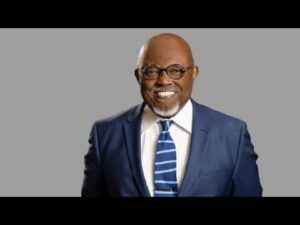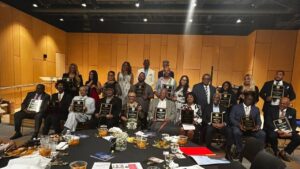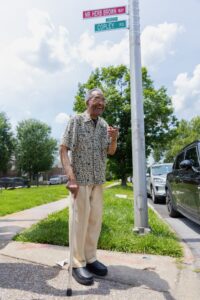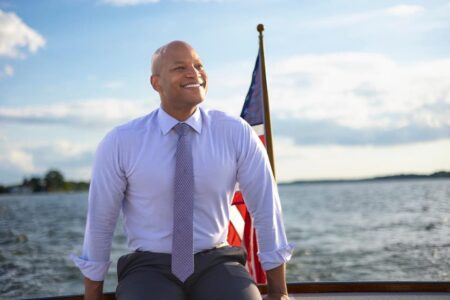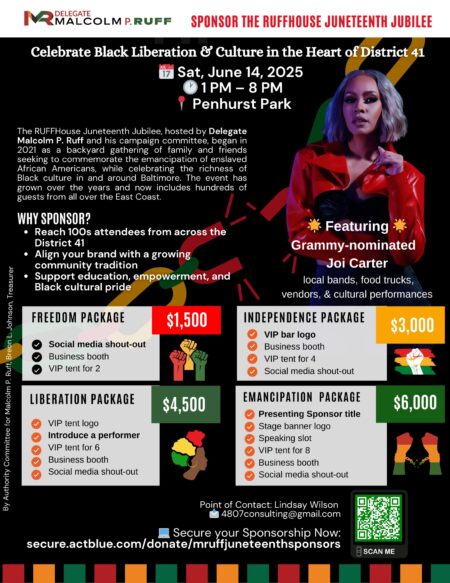(BALTIMORE – October 3, 2023) — The Goucher College Poll, in partnership with The Baltimore Banner, was conducted from September 19 to 23, 2023. It surveyed 711 Baltimore City registered voters (MOE=+/-3.7%). Voters were asked their opinions about key city officials, entities, and issues facing Baltimore City; their opinions about the direction of and optimism toward Baltimore City; and their local media consumption. Additionally, the 537 registered Democrats (MOE=+/-4.2%) in the sample were asked questions about the upcoming Democratic primary races for Baltimore City mayor and City Council president.
The poll was funded and co-sponsored by the Sarah T. Hughes Center for Politics at Goucher College and The Baltimore Banner. See the results by demographics.
Attitudes Toward Baltimore City Officials and Entities
Baltimore City voters were asked to evaluate several government officials and entities.
• 57 percent approve of the job Ivan Bates is doing as Baltimore City state’s attorney, 21 percent disapprove, and
20 percent don’t know.
• 37 percent approve of the job Brandon Scott is doing as mayor, 56 percent disapprove, and 5 percent don’t know.
• 34 percent approve of the job Richard Worley is doing as Baltimore City police commissioner, 33 percent
disapprove, and 32 percent don’t know.
• 31 percent approve of the job the Baltimore City Police Department is doing, 60 percent disapprove, 7 percent
don’t know.
• 26 percent approve of the job Sonja Santelises is doing as CEO of Baltimore City Schools, 51 percent
disapprove, and 21 percent don’t know.
• 26 percent approve of the job Nick Mosby is doing as Baltimore City Council president, 60 percent disapprove,
and 13 percent don’t know.
Perceptions of Key Issues Facing Baltimore City
Sixty-three percent of voters say that Baltimore City is off on the wrong track, and 21 percent say it’s headed in the right direction. At the same time, a majority of voters (55 percent) remain optimistic about the future of the city. Voters were asked whether a series of issues were major, minor, or not issues facing Baltimore City residents. Identical to the June 2022 poll of Baltimoreans, crime and public safety, litter, and illegal dumping, and a lack of affordable housing are the most pressing issues facing city voters.
Percent who say it’s a “major” issue:
• Crime and public safety: 90 percent
• Litter and illegal dumping: 76 percent
• A lack of affordable housing: 74 percent
• The local tax rate: 66 percent
• A lack of employment or job opportunities: 58 percent
• Inadequate public transportation: 51 percent
Baltimore City voters give public schools and overall city services poor marks.
Percent who give each a “D” or “F” grade:
• Baltimore City Public Schools: 63 percent
• Baltimore City services: 59 percent
“The persistent problem of crime and frustrations toward city schools and services have certainly soured attitudes toward elected officials—with the notable exception of City State’s Attorney Ivan Bates, who earns solid job approval numbers—and the direction of the city,” said Mileah Kromer, director of the Sarah T. Hughes Center for Politics at Goucher College.
“But despite the problems facing Baltimore City, voters maintain a sense of optimism that things can get better.”
Crime and Public Safety
As noted above, crime and public safety is the most pressing issue for Baltimoreans. Almost half (47 percent) of voters say crime has gotten worse in their neighborhoods over the past year, and 40 percent say it has “stayed about the same.”
The poll finds that voters are also concerned about young Baltimoreans being victims of crime: 63 percent think young Baltimoreans are more likely to be a victim of crime than they were last year.
Voters are supportive of a variety of measures lawmakers have proposed that are aimed at reducing crime:
• 91 percent support allocating more city resources to address youth violence.
• 85 percent support increasing police presence and the number of patrols throughout the city.
• 81 percent support imposing stricter gun control laws and related punishments for gun crimes.
• 79 percent support imposing harsher punishments for violent offenders.
• 75 percent support allocating funding from the police budget to various social, mental health, and drug treatment
programs.
• 58 percent support increasing the rate of prosecution for non-violent offenses like drug use, petty theft, and
vandalism.
When asked about funding levels for Baltimore City police, 48 percent think it should be increased, 28 percent say it
should be kept about the same, and 16 percent think it should be decreased.
Evaluations of Local Media
Baltimore-based local media is trusted by a majority of voters, and a majority indicate that it will play a significant role in helping them decide who they’ll vote for in the upcoming citywide elections.
• 65 percent of voters say they trust that the news and information coming from local, Baltimore-based media is fair
and accurate “some” or “a lot” of the time.
• 53 percent of voters say that Baltimore-based local news will help determine their vote choices “somewhat” or “a
great deal.”
Voters were also asked about whether they’ve consumed information from some local outlets over the past month:
• WBAL-TV: 69 percent
• WJZ-TV: 67 percent
• Fox45 TV: 58 percent
• The Baltimore Sun: 55 percent
• WMAR-TV: 47 percent
• The Baltimore Banner: 38 percent
• WBAL Radio: 36 percent
• WYPR Radio: 25 percent
• WEAA Radio: 22 percent
• AFRO News: 19 percent
Citywide Democratic Primary Race
Registered Democratic voters were asked additional questions about the upcoming primary races for Baltimore City mayor and City Council president.
If the Democratic primary election for Baltimore City mayor were held today, 27 percent would vote to reelect Mayor Brandon Scott, 39 percent would vote for former Mayor Sheila Dixon, 23 percent would prefer “some other candidate,” and 8 percent are undecided.
Respondents who say they would prefer to vote for “some other candidate” were asked whether Scott or Dixon had the better chance of winning their vote:
• 36 percent say Brandon Scott.
• 33 percent say Sheila Dixon.
• 21 percent say “neither” or they “wouldn’t vote.”
• 7 percent say they are unsure.
Democratic voters were also asked how they viewed Mayor Brandon Scott and former Mayor Sheila Dixon.
• 37 percent have a favorable view of Mayor Brandon Scott and 53 percent have an unfavorable view.
• 47 percent have a favorable view of former Mayor Sheila Dixon and 45 percent have an unfavorable view.
Additionally, Democratic voters were asked whether Brandon Scott or Sheila Dixon were best able to handle a series of key
issues:
Managing and staffing city agencies
• Brandon Scott: 33 percent
• Sheila Dixon: 50 percent
Working with private industry to promote and improve economic development
• Brandon Scott: 36 percent
• Sheila Dixon: 47 percent
Reducing crime and improving overall public safety
• Brandon Scott: 31 percent
• Sheila Dixon: 50 percent
Improving public education
• Brandon Scott: 33 percent
• Sheila Dixon: 46 percent
Attracting and retaining Baltimore City residents
• Brandon Scott: 34 percent
• Sheila Dixon: 44 percent
Finally, Baltimore City Democratic voters were asked about the primary race for City Council president. If the Democratic primary election for Baltimore City Council president were held today, 17 percent would vote to reelect City Council President Nick Mosby, 30 percent would vote to elect Councilman Zeke Cohen (D-1), 34 percent would prefer “some other candidate,” and 18 percent are undecided.
“Incumbency comes with immense power but also accountability. Given the frustrations over crime and city services expressed by voters, it’s not surprising that both Mayor Brandon Scott and City Council President Nick Mosby are facing tough reelection contests from viable challengers,” says Kromer. “With so many voters saying they want to see other candidates in the race, the key electoral dynamics to watch over the next few months are whether other high-quality candidates get into those respective races—and, of course, whether the incumbents can improve their standing with the public.”

